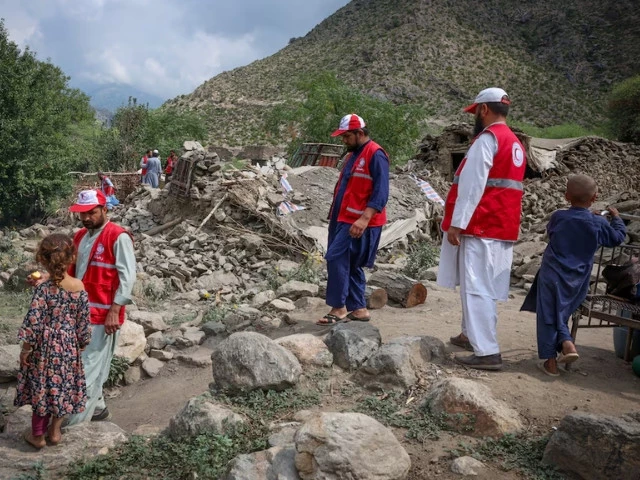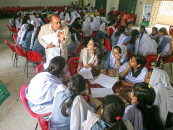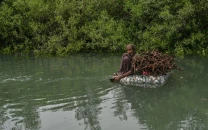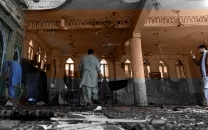Neighbours discuss joint Afghan approach
Pakistan, China, Russia and Iran confer before key Moscow Format talks

Representatives from Pakistan, China, Russia, and Iran met in Moscow on Monday to coordinate their positions ahead of the seventh round of the Moscow Format consultations on Afghanistan, scheduled to begin on Tuesday (today).
The meeting brought together special envoys from the four regional powers for detailed discussions on the situation in Afghanistan, particularly the ongoing security challenges and the threat of terrorism.
According to a statement issued by the Russian Foreign Ministry, the four-party meeting focused on preparations for Tuesday's session, including drafting the final communique of the format.
Sources said that the participants also discussed their joint opposition to the establishment of any foreign military bases inside Afghanistan, a topic expected to feature prominently in the main meeting.
Earlier, Pakistan's Special Representative for Afghanistan, Ambassador Mohammad Sadiq, held a series of bilateral meetings in Moscow ahead of the consultations.
He met with his Iranian counterpart, Mohammad Reza Bahrami, to discuss the latest developments in Afghanistan, shared regional concerns particularly the persistent threat of terrorism and stressed the importance of continued dialogue and coordination among neighbouring countries.
Ambassador Sadiq also met with China's Special Envoy for Afghanistan, Ambassador Yue Xiaoyong, where both sides reaffirmed the significance of regional security cooperation, counter-terrorism coordination, and the need to address humanitarian concerns in Afghanistan through collective action.
The meeting, according to Ambassador Sadiq, underscored the strong partnership between Islamabad and Beijing in promoting stability and development in the region.
Additionally, Sadiq met with his Russian counterpart, Ambassador Zamir Kabulov, to discuss measures for enhancing regional cooperation on Afghanistan. Pakistan's Ambassador to Kabul, Ubaidur Rehman Nizamani, was also present during the meeting.
Launched in 2017 by Russia, the Moscow Format on Afghanistan serves as one of the most significant regional diplomatic platforms addressing the Afghan issue. It brings together Afghanistan's immediate and extended neighbours to deliberate on political reconciliation, counter-terrorism, and humanitarian concerns in the war-torn country.
The core members of the format include Russia, China, Pakistan, Iran, India, and the five Central Asian statesKazakhstan, Kyrgyzstan, Tajikistan, Turkmenistan, and Uzbekistan.

























COMMENTS
Comments are moderated and generally will be posted if they are on-topic and not abusive.
For more information, please see our Comments FAQ